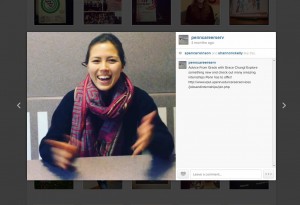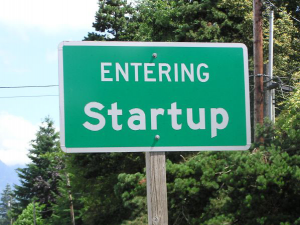by Barbara Reich
My senior year at Penn was the first time ever that I didn’t have a plan. All I knew was what I didn’t want to do after graduation. I had explored career options within my major of psychology, eliminating one after another. I had considered law school, but concluded that a mountain of debt was too high a price for a degree that I didn’t really want. I thought about publishing, teaching, and advertising, but nothing felt quite right. Then, I heard about an Executive MBA program jointly sponsored by Price Waterhouse (now PriceWaterhouse Coopers) and New York University Stern School of Business. Depending on the semester, I would work or attend classes full or part time, and at the end of the program, I would have an MBA, no loans, and three years of work experience. I had never considered being an accountant, but I mailed a resume, secured an interview, took a train to New York City, and came back to Penn with a job offer. I was a little shell shocked, but it was a plan.
Unfortunately, the plan soon unraveled. I didn’t enjoy the business courses and had no passion for accounting. The months that I worked full time and went to school at night were brutal. I was staffed on a bank merger, working 12 hour days and weekends, leaving work to go to class, and returning to work afterward. I was exhausted and unhappy. And, since I had no time to even think about another job, I simply soldiered on, focusing on getting my MBA. At that time, I figured I could look to move internally to another area within PriceWaterhouse (an advantage of working at a large firm) while I came up with my next plan.
Before that happened though, fate intervened. In one of my MBA classes, I worked on a group project with a woman who was a human resources management consultant. Her job sounded compelling to me, and by the time the class met again, I had updated my resume for her. A few months later, I had a job offer from her firm, the Hay Group. I found the work interesting, and the culture at the Hay Group to be congenial and inspiring. Yet, after five years, I decided to move to a smaller firm where I would have a larger role. That, it turns out, was one of those mistakes that work out for the best. I soon determined that there was no reason to bring my clients to another firm when I could run my own. So, Resourceful Consultants, LLC was born and just four months later, my twin daughter and son were born.
During the next two years, I worked part time, picking and choosing clients that fit my lifestyle. Then, one day, I got a call from a former Hay Group colleague. She had a client who wanted to hire someone to organize a home office. Her words were, “Don’t kill me, but I gave him your number. You should do this.” And, so I did, and I LOVED it. I started calling myself a professional organizer, told everyone I knew, and soon had my second client. That person referred a friend, and each of those friends referred friends, and my business began to grow. Soon, I was meeting with two clients a day, five days a week, helping them organize their homes, offices and lives. In 2011, the NY Times wrote a two-page story about me and my business, and that’s when things really took off. Today, I’m the author of a book (Secrets of an Organized Mom), and have appeared on The Today Show, Inside Edition, Good Morning America, Fox News, and New York 1. In addition to the NY Times, I’ve also been in the New York Post, Real Simple, InStyle, People StyleWatch, Family Circle, Better Homes and Gardens, AARP Magazine, and O Magazine among other publications.
When I entered my senior year of college, I had never taken an accounting course or heard of a professional organizer, so every job I ultimately held was unimaginable to me at the start of my search. I hope sharing my path will help others realize that it’s completely normal not to know exactly what you aspire to be. I’ve heard it said that if you do what you love, the money follows. I’ve also heard it said that if you love what you do, it’s not work. Both of those sentiments apply to my career, and I hope one day to yours.
—
More information about Barbara and her organization can be found at ResourcefulConsultants.com or Facebook.com/ResourcefulConsultants.



